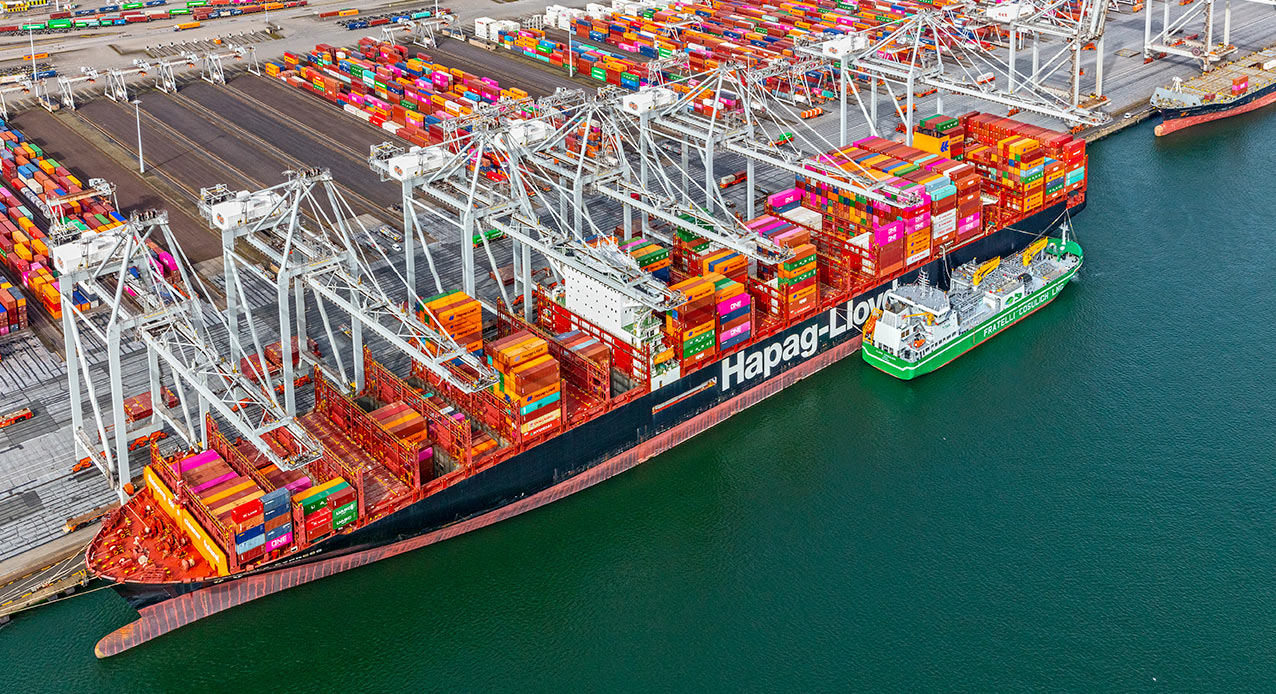Germany’s Hapag-Lloyd has joined forces with Dutch LNG supplier Titan and trader STX to complete what they say is the largest ship-to-ship bio-LNG bunkering operation in the port of Rotterdam.
According to a joint statement issued on Monday, the 8,200-cbm LNG bunkering vessel, Alice Cosulich, owned by Fratelli Cosulich and chartered by Titan, delivered 2,200 metric tons of liquefied biomethane (LBM), or bio-LNG, to Hapag-Lloyd’s 15,000-teu Brussels Express, the world’s first ultra-large containership LNG retrofit.
“This transaction marks Hapag-Lloyd’s entry into using LBM as sustainable shipping fuel, representing the largest ship-to-ship bunkering operation known till date,” the partners said.
STX and Titan have collaborated to liquefy, store, and deliver mass-balanced biomethane in Zeebrugge in Belgium under ISSC certification fully recognized under the European Union’s Renewable Energy Directive known as RED II, the statement said.
Jan Christensen, senior director fuel purchasing at Hapag-Lloyd said that this “pioneering” deal demonstrates that bunkering large quantities of liquefied biomethane is possible and scalable.
“However, there is still more progress required regarding the necessary infrastructure and the regulatory framework. For us, bunkering liquefied biomethane is another measure in our step-by-step approach to further decarbonize our operations to reach our goal of becoming net-zero by 2045,” Christensen said.
Hapag-Lloyd’s LNG-powered fleet
Besides biomethane, Hapag-Lloyd is working on a synthetic methane project as it looks to further reduce emissions from its fleet of LNG-powered containerships.
Last year, the company took delivery of the first of 12 ultra-large LNG-powered containerships from South Korea’s Hanwha Ocean, previously known as DSME.
Hapag-Lloyd first ordered six 23,500-teu LNG dual-fuel containerships from Hanwha Ocean in 2020, and it added six more sister vessels in 2021. The orders have a total price tag of about $2 billion.
The company said in its 2023 sustainability report released that it put three of its 12 new dual-fuel vessels into service, while a further nine LNG dual-fuel newbuilds will go into operation by 2025.
Hapag-Lloyd said its LNG bunker consumption totaled 22,769 tonnes in 2023. In 2022, the company’s LNG bunker consumption totaled 4,582 tonnes.

